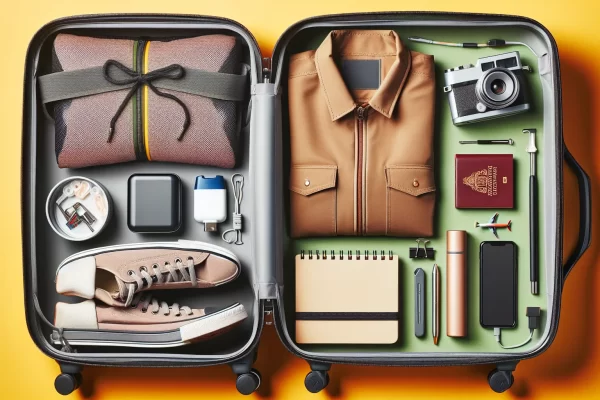
How Do You Deal With Unexpected Travel Delays?
How Do You Deal With Unexpected Travel Delays? When travel plans go awry, strategies for maintaining patience and adaptability become…

How Do You Deal With Unexpected Travel Delays? When travel plans go awry, strategies for maintaining patience and adaptability become…

How Do You Handle Rejection When Pursuing Your Dreams? Facing rejection and setbacks is an inevitable part of chasing dreams…

What’s Your Favorite Book Cover Design, and Why? Book cover designs can often be as captivating as the stories they…

What’s Your Strategy for Staying Safe While Traveling Solo? Solo travel can be an exhilarating experience, but it also requires…

What Literary Character Do You Relate to Most? In the quest to find ourselves within the pages of literature, we’ve…

How Do You Pack Light for Extended Trips? Embarking on an extended journey with minimal baggage can be a liberating…

What’s the Most Memorable Art Exhibition You’ve Attended? From the surreal worlds of Dalí to the timeless expression of ancient…

What’s Your Approach to Responsible and Sustainable Travel? We’ve gathered insights from founders and marketing leaders on how to traverse…

What’s the Best Surprise Your Friend Ever Gave You? We’ve gathered the most heartwarming stories of unexpected joy from founders…

How Can You Travel on a Tight Budget? From keeping your travel dates and destinations flexible to utilizing co-living spaces…